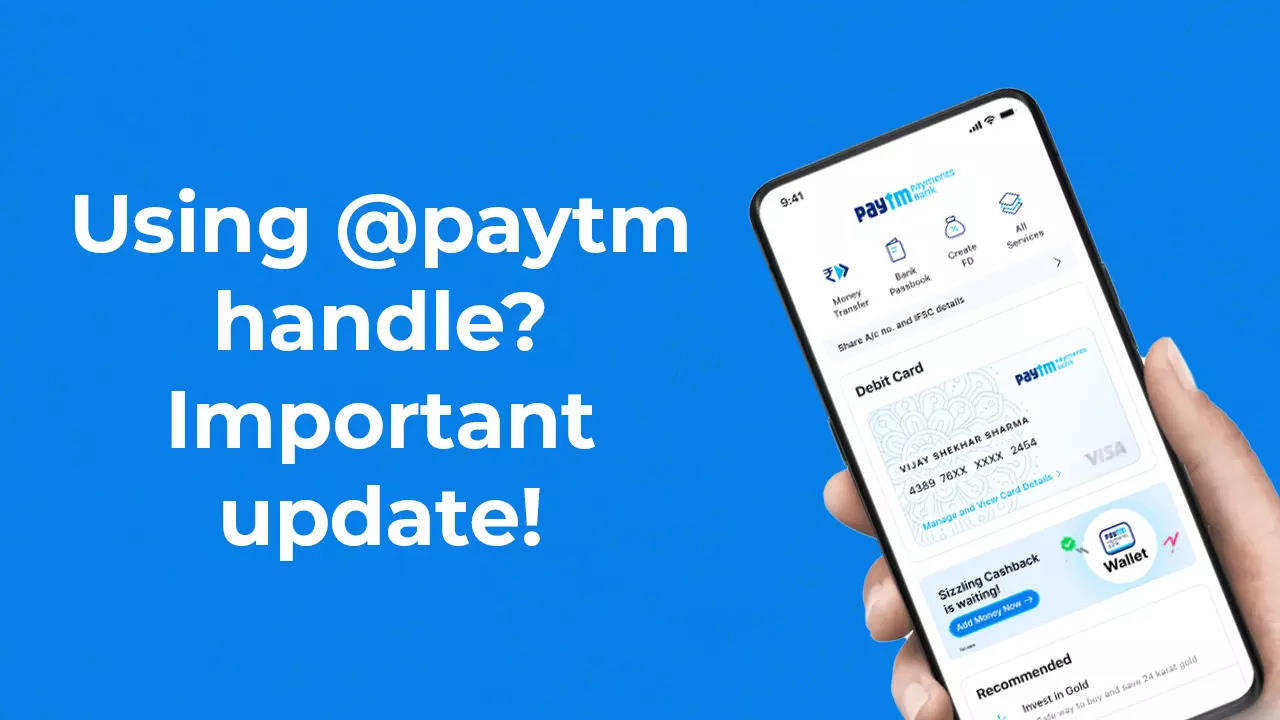Paytm Payments Bank update: The Reserve Bank of India (RBI) has announced additional measures to ensure uninterrupted digital payments for UPI customers utilizing the @paytm handle, following its decision that Paytm Payments Bank will halt accepting further credits into customer accounts and wallets after March 15, 2024.
These directives apply exclusively to current @paytm UPI handle users, with no action required for those using UPI addresses other than @paytm.
RBI has instructed the National Payments Corporation of India (NPCI) to review One97 Communication Ltd (OCL) request to operate as a Third-Party Application Provider (TPAP) for the UPI channel on the Paytm app. This move aligns with regulatory standards.
NPCI’s potential granting of TPAP status to OCL would necessitate the seamless migration of @paytm handles from Paytm Payments Bank to a select group of newly identified banks, preventing any disruption.
In order to mitigate concentration risk, RBI has directed NPCI to certify 4-5 banks as Payment Service Provider (PSP) banks capable of handling high-volume UPI transactions.
Also Read | Paytm Payments Bank crisis: RBI releases FAQs for customers – all queries on UPI, FASTag, Paytm wallet answered; check full list
Merchants using Paytm QR codes may see settlement accounts opened with PSP banks other than Paytm Payments Bank, should OCL pursue this course.
To sum up, the additional steps, as listed by RBI are as follows:
These directives apply exclusively to current @paytm UPI handle users, with no action required for those using UPI addresses other than @paytm.
RBI has instructed the National Payments Corporation of India (NPCI) to review One97 Communication Ltd (OCL) request to operate as a Third-Party Application Provider (TPAP) for the UPI channel on the Paytm app. This move aligns with regulatory standards.
NPCI’s potential granting of TPAP status to OCL would necessitate the seamless migration of @paytm handles from Paytm Payments Bank to a select group of newly identified banks, preventing any disruption.
In order to mitigate concentration risk, RBI has directed NPCI to certify 4-5 banks as Payment Service Provider (PSP) banks capable of handling high-volume UPI transactions.
Also Read | Paytm Payments Bank crisis: RBI releases FAQs for customers – all queries on UPI, FASTag, Paytm wallet answered; check full list
Merchants using Paytm QR codes may see settlement accounts opened with PSP banks other than Paytm Payments Bank, should OCL pursue this course.
To sum up, the additional steps, as listed by RBI are as follows:
- National Payments Corporation of India (NPCI) has been advised by the RBI to examine the request of One97 Communication Ltd (OCL) to become a Third-Party Application Provider (TPAP) for UPI channel for continued UPI operation of the Paytm app, as per the norms.
- It has been further advised that in the event of NPCI granting TPAP status to OCL, it may be stipulated that ‘@paytm’ handles are to be migrated in a seamless manner from Paytm Payments Bank to a set of newly identified banks to avoid any disruption. No new users are to be added by the said TPAP until all the existing users are migrated satisfactorily to a new handle.
- For seamless migration of ‘@paytm’ handle to other banks, NPCI may facilitate certification of 4-5 banks as Payment Service Provider (PSP) Banks with demonstrated capabilities to process high volume UPI transactions. This is in line with NPCI norms for minimising concentration risk1.
- For the merchants using PayTM QR Codes, OCL may open the settlement accounts with one or more PSP Banks (other than Paytm Payments Bank).
RBI reiterates its stance that customers with accounts or wallets linked to Paytm Payments Bank should arrange alternative banking arrangements well in advance of March 15, 2024.
Additionally, holders of FASTag and National Common Mobility Cards (NCMC) issued by Paytm Payments Bank are advised to seek alternative solutions before the aforementioned date.
These measures, as stated by RBI in its press release, are solely aimed at safeguarding customers and the payment system against potential disruptions and are independent of any regulatory or supervisory actions initiated against Paytm Payments Bank.
